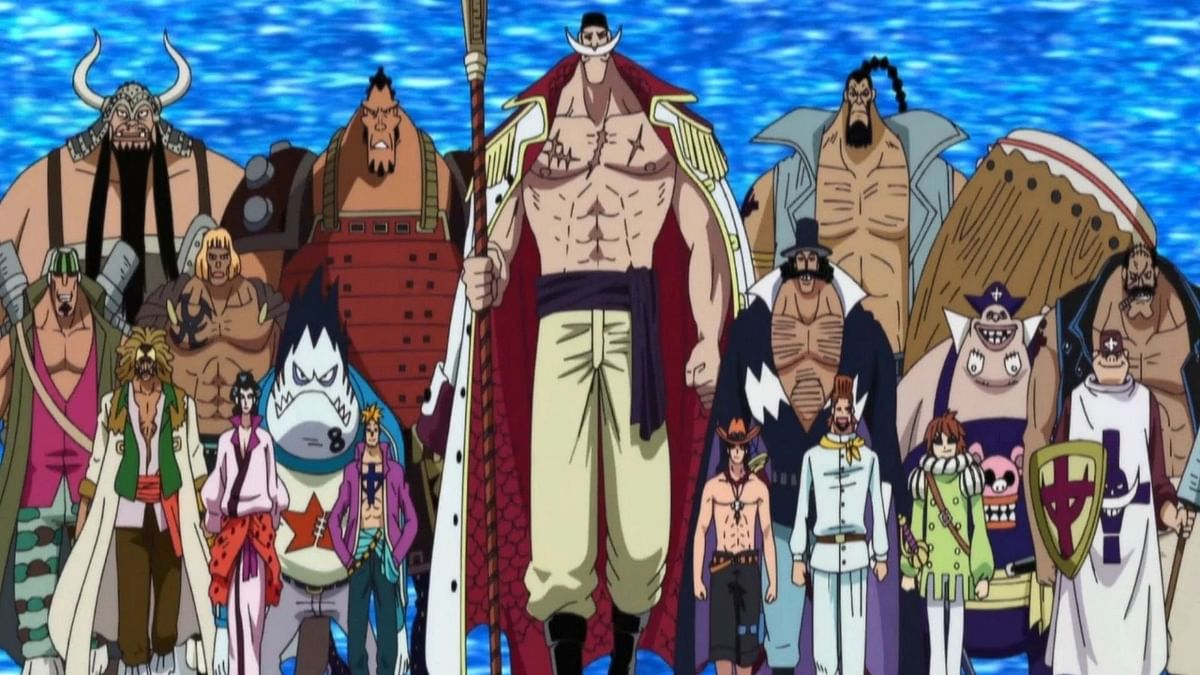Nintendo's Conservative Approach: A Winning Formula Or Missed Opportunity?

Table of Contents
Nintendo's Risk-Averse Strategy: A Deep Dive
Nintendo's strategic choices are often characterized by a degree of caution, a calculated risk aversion that has shaped their identity and market position. This risk-averse strategy manifests in several key areas.
Focus on First-Party IPs
Nintendo heavily relies on its iconic first-party intellectual properties (IPs), such as Mario, Zelda, Pokémon, and Animal Crossing.
- Consistent Success: These franchises consistently deliver high sales, generating significant revenue and solidifying Nintendo's brand recognition globally. Their enduring popularity fuels consistent console sales.
- Brand Recognition & Financial Stability: The inherent value and familiarity of these IPs provide a strong foundation for financial stability, reducing reliance on external factors.
- Counterpoint: Stagnation Risk? However, over-reliance on established IPs could lead to creative stagnation. A lack of investment in new franchises might leave Nintendo vulnerable to changing market preferences and emerging competitors. Developing fresh, original IPs carries significant risk, but neglecting this area could stifle future growth.
Hardware Innovation vs. Market Trends
Nintendo's approach to console design is often unique, deviating from industry trends.
- Unique Functionalities: The Wii's motion controls revolutionized gaming, while the Nintendo Switch's hybrid design (handheld and home console) created a new market segment. This innovative approach has consistently differentiated Nintendo's offerings.
- Counterpoint: Alienating the Market? While innovative, these unique choices can sometimes alienate segments of the market. The Wii U's underperformance, for instance, highlights the potential downsides of diverging significantly from established gaming conventions. A more market-responsive approach might have yielded greater market share in certain periods.
Controlled Online Ecosystem
Nintendo's online services differ significantly from competitors like PlayStation Network and Xbox Live.
- Family-Friendly and Safe: Nintendo's online platform prioritizes a family-friendly environment with stricter content moderation. This focus attracts a specific demographic and enhances brand image.
- Limitations in Features and Integration: However, this controlled ecosystem often lacks features and integration seen on rival platforms, potentially limiting player engagement and hindering the adoption of certain game features.
- Counterpoint: Openness and Competition: A more open and competitive online environment, embracing greater third-party integration, could enhance the overall user experience and attract a wider player base.
The Financial Success of Conservatism
Despite its risk-averse strategy, Nintendo has consistently demonstrated remarkable financial success.
Consistent Profits and Brand Loyalty
Nintendo's financial performance showcases the effectiveness of its conservative approach.
- High Sales Figures & Market Share: Consistent strong sales of consoles and games, coupled with a loyal customer base, translate into sustained profitability.
- Brand Loyalty: Nintendo enjoys exceptionally high brand loyalty, with players returning to its platforms generation after generation. This loyalty provides a solid base for continued success, even during periods of slower growth.
- Resilience: The company has demonstrated significant resilience in the face of market fluctuations and competitive pressures, underscoring the strength of its established brand and loyal customer base.
The Niche Market Advantage
Nintendo has successfully carved a niche for itself within the gaming market.
- Family-Friendly Approach: Targeting a family-friendly audience minimizes direct competition with more mature-focused gaming companies.
- Successful Marketing & Brand Identity: The consistent brand image and targeted marketing campaigns effectively resonate with their core demographic.
- Minimized Competition: This focused niche reduces direct competition and allows Nintendo to dominate its specific segment of the market.
Missed Opportunities? Exploring the Downside
While Nintendo's conservative approach has delivered significant success, it also presents potential downsides.
Lack of Third-Party Support
Nintendo platforms have historically struggled to attract significant third-party support.
- Unique Hardware Architecture: The unique architecture of Nintendo consoles can make development challenging and costly for third-party developers.
- Less Powerful Consoles: Compared to competitors, Nintendo consoles have sometimes been less powerful, limiting the potential for graphically demanding games.
- Effect on Game Breadth: The lack of robust third-party support limits the variety of games available on Nintendo platforms, potentially affecting market reach and appeal.
Missed Technological Advancements
Nintendo has occasionally been slow to embrace emerging technologies.
- Online Gaming: The relatively late adoption of robust online gaming features compared to competitors shows a reluctance to fully embrace certain technological advances.
- VR/AR: Nintendo's limited foray into virtual and augmented reality showcases a hesitation to invest heavily in rapidly evolving technologies.
- Impact of Proactive Adoption: A more proactive adoption of new technologies could have expanded Nintendo's market reach and enhanced the appeal of their platforms.
Limited Market Reach
Nintendo's conservative strategy might limit its overall market share.
- Comparison to Competitors: Compared to Sony and Microsoft, Nintendo holds a smaller share of the overall gaming market.
- Increased Risk-Taking Could Broaden Appeal: A more calculated approach to risk-taking, embracing new technologies and genres, could potentially significantly broaden their appeal and expand market share.
Conclusion
Nintendo's conservative approach has been undeniably successful, generating consistent profits and building a fiercely loyal fanbase. Its focus on first-party IPs, unique hardware, and family-friendly image has created a strong and recognizable brand. However, the analysis reveals potential missed opportunities stemming from a reluctance to fully embrace third-party development, leading technologies, and broader market segments. The company's future success might hinge on finding a balance – leveraging its strengths while strategically incorporating calculated risks to capture a larger share of the ever-evolving gaming market. What are your thoughts on Nintendo's conservative approach? Could a more balanced approach, incorporating measured risk-taking, enhance Nintendo's already impressive success? Share your opinions in the comments below!

Featured Posts
-
 40 Yasindaki Ronaldo Efsane Devam Ediyor
May 28, 2025
40 Yasindaki Ronaldo Efsane Devam Ediyor
May 28, 2025 -
 Sinners Strong Start Dominant Top Half Draw At Roland Garros
May 28, 2025
Sinners Strong Start Dominant Top Half Draw At Roland Garros
May 28, 2025 -
 Tyrese Haliburtons Father Pacers Remove Suspension
May 28, 2025
Tyrese Haliburtons Father Pacers Remove Suspension
May 28, 2025 -
 One Piece The Deadliest Pirate Crews And Their Most Violent Acts
May 28, 2025
One Piece The Deadliest Pirate Crews And Their Most Violent Acts
May 28, 2025 -
 Mlb Betting Brewers Vs Diamondbacks Game Predictions And Best Odds
May 28, 2025
Mlb Betting Brewers Vs Diamondbacks Game Predictions And Best Odds
May 28, 2025
